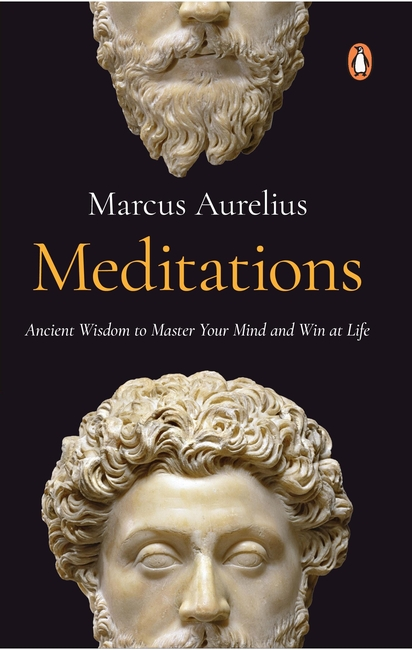Almost everyone considers themselves a good thinker, yet this is a quality possessed by a surprisingly small fraction of the population. According to the Marcus Aurelius, true cognitive development requires perpetual transformation. Don’t worry about the jargons, will simplify it soon.

Take a moment to look around – how many individuals do you observe progressively advancing in life? How many are consistently overcoming challenges? Conversely, how many seem stuck in a loop, forever wrestling with the same issues they’ve faced for years?
It quickly becomes apparent that excelling at problem-solving is directly linked to the quality of one’s thinking. And, good thinking begins with clarity.
Marcus Aurelius: The Power of Clear Thinking
Marcus Aurelius, esteemed as the last of the Five Good Emperors of Rome and admired as a philosopher-king, is an excellent example of a great thinker. His ability to lead was inextricably linked to his clear thinking.
He honed his critical thinking skills through personal introspection, encapsulated in his private writings – now known as his Meditations. In these profound reflections, Aurelius meticulously organized his thoughts, pondering the causal relationships between his actions and their outcomes.
How he organised his thoughts?
How he redefined the relationships between his actions and outcomes?
Clear Thought: The Foundation of Good Thinking
A clear thought is one that is unambiguous, captures the essence of a concept, and is logically formulated. Such thoughts can be articulated succinctly using simple ‘if-then’ statements, such as “If you learn driving, then you can drive a car” These clear, concise ideas lead to straightforward, intentional actions. Consequently, the above statement translates into a definitive action: when you want a solo ride- learn driving.
How do you know, whether you are good at driving or not?
Clarity Begets Clarity
Clear and intentional actions, in this context, lead to concrete results. When you sit behind the wheel after learning to drive, you will immediately find out whether your initial thought was correct. Either you can operate the wheels proficiently, or you cannot.
This clear feedback, confirming or debunking your supposition, aids in refining your comprehension of your abilities. By discovering whether your self-perception aligns with your actual skills, you move closer towards self-awareness. The more accurate your self-understanding, the better you become at overcoming personal challenges.
Emulating the Greats: Practical Steps towards Clear Thinking
If your goal is to improve your own problem-solving abilities, it’s advisable to emulate Aurelius’s approach.
Begin by organizing your thoughts. Eliminate ambiguity, striving for clarity by encapsulating them in straightforward ‘if-then’ statements. This reductionist logic leads to clearer thoughts, which, in turn, yield clear and intentional actions. These actions produce clear feedback, improving your understanding of the world and, thus, enhancing your problem-solving abilities.
Let’s consider this example: “If I incorporate a philosopher’s name into my writing to establish its authenticity, then more readers will be drawn to my work out of curiosity.” This hypothesis ( maybe a null-hypothesis 😉 ) is not only clear but also steeped in logical reasoning, which catalyzes clear action – crafting and publishing the piece.
Once published, the feedback received—measured by the number of readers, their engagement, and their responses—provides immediate validation or negation of the initial idea. It helps you understand your readers’ preferences better and improves your writing strategies for reader engagement. As a result, you’ll be better equipped to meet your goals as a successful writer.
Other Major Learnings From Marcus Aurelius

Marcus Aurelius’s ‘Meditations’ is a profound philosophical work that distills key lessons from Stoicism, a philosophy that emphasizes virtue, wisdom, and the understanding of nature. Here are some of my favourite key teachings from ‘Meditations’.
1. Embrace the Stoic Perspective
- Acceptance of Life’s Unpredictability:
- Take the example of a sudden job loss or a pandemic like COVID-19. No one can predict such life-changing events, and they can leave us feeling anxious and unsettled. However, accepting the fact that life is unpredictable and that we can’t control everything helps to reduce anxiety and stress.
- Virtue as the Highest Good
- Consider the story of Mahatma Gandhi. Gandhi led India to independence from British rule through his virtue of non-violence, which he held as a moral excellence. Despite numerous provocations and adversities, he never compromised on his principle of non-violence. This virtue was within his control and he consistently chose to uphold it, leading by example and inspiring millions.
- Wisdom Over Emotion
- Imagine a situation where someone cuts you off in traffic. Your immediate emotional response might be anger, and you might feel like retaliating in some way. However, by using wisdom over emotion, you would realize that retaliating won’t solve anything, and might even create more problems, like causing an accident or escalating the situation. Instead, by staying calm and moving on, you can ensure your safety and maintain peace of mind. Road Raging is a serious issue.
2. Pursue Rationality
- Value Reason: As rational beings, we should let reason, not desire or fear, guide our decisions and actions.
- Let’s imagine you’re the marketing manager of a successful sportswear company. You’ve recently noticed an uptick in popularity for eco-friendly products. The initial desire might be to immediately launch an eco-friendly product line to capitalize on the trend. However, instead of acting on impulse, you decide to let reason guide your actions.
- You initiate comprehensive market research, analyzing competitors, potential price points, and your target audience’s willingness to pay for environmentally-friendly sportswear. Only after careful and reasoned consideration, evaluating the cost-benefit ratio, do you decide to proceed with the launch, ensuring a more successful outcome.
- Pursue Knowledge: We should continuously seek wisdom and knowledge for personal development and betterment of society.
- Imagine a small business owner whose company has been successful for many years using traditional business methods. However, with the rise of e-commerce and digital marketing, don’t you think there is a need to adapt? Instead of sticking to what they know, they should pursue knowledge in these new areas.
3. Cultivate Resilience
- Transform Obstacles into Opportunities
- During the 2008 economic recession, Airbnb faced a significant obstacle: people were reluctant to travel, let alone stay in strangers’ homes. However, Airbnb saw an opportunity in this crisis. They focused on providing affordable accommodation alternatives to expensive hotels, a value proposition that attracted cost-conscious travelers during the downturn. The company has since grown exponentially and is now a major player in the global hospitality industry.
- Cultivate Emotional Resilience: We should remain undisturbed by external events and maintain equanimity, no matter the situation.
- In 2008, Starbucks faced declining sales due to the global economic crisis and growing competition. Howard Schultz, then CEO, returned to the company and made tough decisions, including closing hundreds of stores and reducing staff. It was a challenging period, but Schultz maintained emotional resilience. He believed in the company and his strategy. Today, Starbucks has rebounded and continues to be a leader in the global coffee industry
To quote Marcus Aurelius himself: “The happiness of your life depends upon the quality of your thoughts.” By striving for clarity and cultivating emotional resilience, by seeking knowledge and valuing reason, we can transform obstacles into opportunities, thereby enhancing the quality of our thoughts and, ultimately, the quality of our lives.
1 Comment